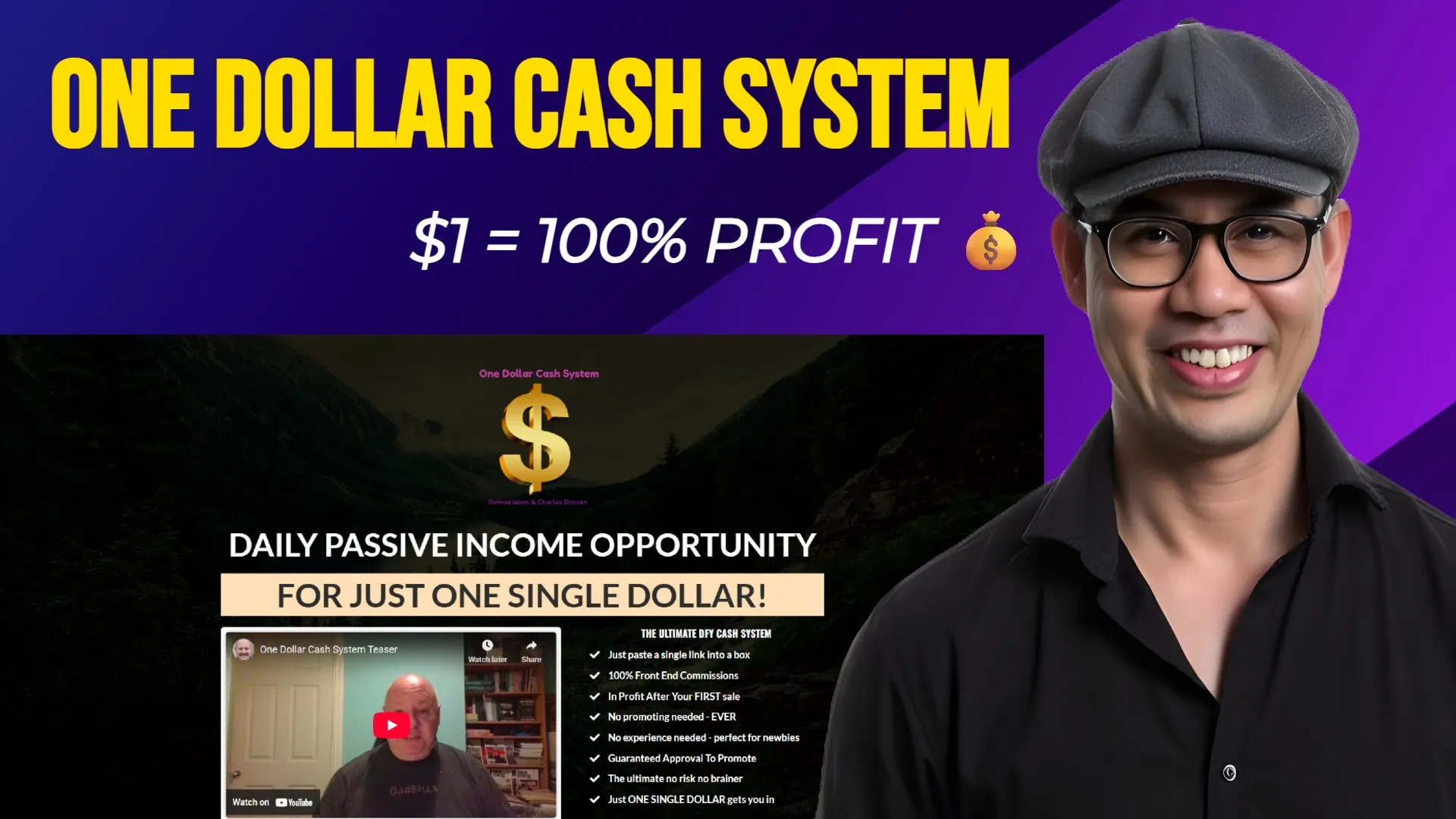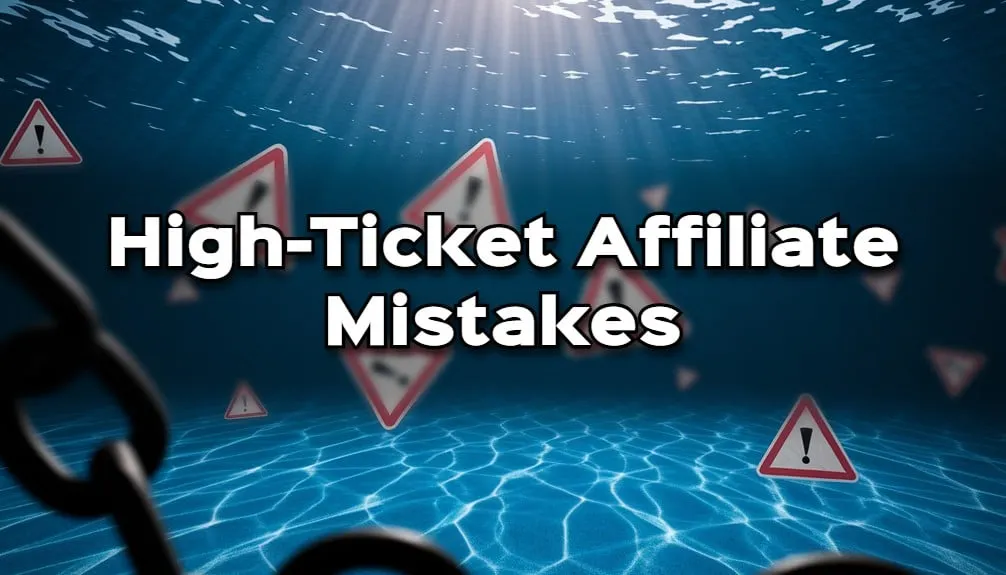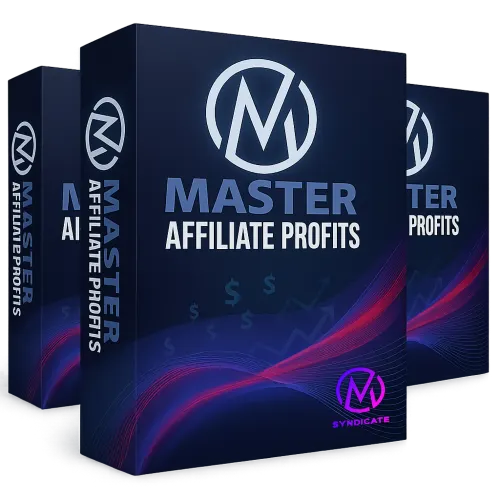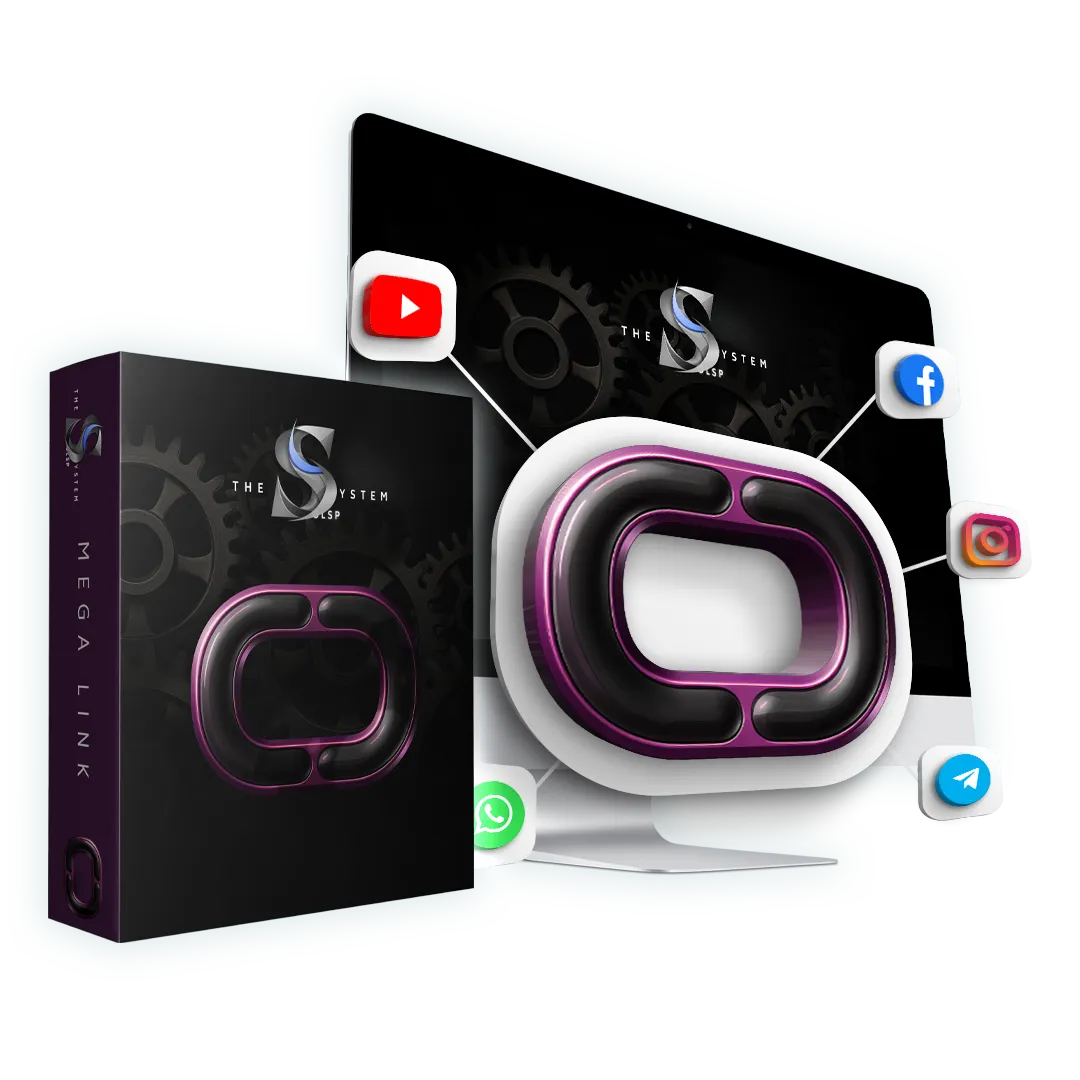The Beginner's Guide to Organic Marketing: Grow Your Business Naturally
Are you tired of spending money on ads that don't work? Have you wondered how some businesses get customers without paying for clicks? Organic marketing may be exactly what you need to build a business without spending a lot.

What is Organic Marketing?
Organic marketing is a strategy to get customers naturally over time, without paying for visibility or clicks. Unlike paid ads, organic marketing grows your presence slowly through content, social media, and relationships.
The main idea of organic marketing is giving value before asking for anything. This approach takes patience, not quick wins.
Organic marketing includes:
- Content creation
- Search engine optimization (SEO)
- Social media
- Email marketing
- Community building
Content creation is at the center. Blogs, videos, podcasts, and social posts share your expertise and build trust. This content is the foundation.
The beauty of organic marketing is it feels less like marketing and more like helpful information. People seek out your content because it's useful, not because an ad interrupted them.
How Organic Marketing Works
Organic marketing follows these core principles:
- Value first, sell second. Focus on helping before selling.
- Patience required. Results take time but last longer.
- Consistency over perfection. Regular content builds momentum.
- Authenticity builds trust. Being real connects more than sales pitches.
What makes organic marketing good for beginners is you can start with minimal investment - just a computer and your knowledge.
Why Organic Marketing Matters
Here's what I've learned after 20 years of online marketing: paid ads bring quick traffic, but organic marketing builds lasting businesses. Ads stop working when you stop paying, but organic traffic keeps flowing after you publish something.
The long-term benefits of organic marketing are big. Content you make today might still bring leads and sales years from now. I have blog posts from 2010 that still bring me business!
Trust is key for online business, and organic marketing earns it best. When people find your helpful content through Google or a friend's suggestion, they trust you more than if they saw an ad.
This trust means credibility, which makes selling easier later. By the time you offer something for sale, your audience already knows, likes, and trusts you.
Cost Savings of Organic Marketing
One of the best parts of organic marketing for beginners is the low cost. Let's compare the numbers over time:
| Type | Startup Cost | Ongoing Cost | Results Last | Long Term Success |
|---|---|---|---|---|
| Paid Ads | $0-$1000 | $$$ | Days to weeks | Low to medium |
| Organic Marketing | $0-$500 | $ | Months to years | High |
Organic marketing costs less over time. Content keeps working indefinitely after you make it. I have blog posts from 10+ years ago still bringing me business today!
For beginners wanting to earn money online, these cost savings can make the difference between success and failure. You can reinvest profits rather than spend them all on ads.
Remember - every dollar not spent on ads is profit in your pocket. Organic marketing provides the most cost-effective path for beginners with limited budgets.
How Organic Marketing Differs from Paid Ads
Think of paid marketing as renting attention, and organic as owning it. With paid ads, you rent space on someone else's platform. When you stop paying, your visibility disappears.
Paid ads offer precision and speed. You can target exactly who sees your ads and get immediate traffic. But paid ads are expensive, temporary, and often attract lower-quality leads.
Organic marketing works differently. Instead of paying for each visitor, you invest time upfront creating valuable content and relationships. It's slower, but the results belong to you and continue working long after initial effort.
Sustainability of Organic vs. Paid
I've seen many online businesses crash when ad costs rose or algorithms changed. A business built only on paid traffic is vulnerable to things outside your control. One change can wipe out your profits fast.
Organic marketing provides stability in the unpredictable online world. While not immune to changes, a diverse organic strategy creates a safety net for your business across platforms.
This sustainability comes from owning audience relationships rather than renting access temporarily. When someone follows you because they genuinely value your content, that connection is an asset you control.
This stability is key for beginners wanting lasting online businesses. Starting with organic marketing builds a solid base that supports additional strategies later.
Brand Visibility and Loyalty
There's power in being found naturally versus interrupting with an ad. When a potential customer discovers your content through Google or a friend's suggestion, they have a different mindset - they're seeking solutions rather than avoiding ads.
This discovery creates stronger first impressions and higher loyalty. People tend to feel more connected to brands they found on their own rather than pushed into view.
Organic reach also attracts ideal customers. Since they found you by searching related topics, they're already interested in what you offer. This means organic traffic often converts better long-term than paid traffic.
For beginners building side hustles, these loyal customers become your success foundation. They're more likely to buy again, recommend you, and stick with you through business changes.
Elements of a Successful Organic Strategy
A strong organic strategy combines key elements thoughtfully:
First, be very clear who you want to reach. Vague targets give vague results. Get specific about your ideal customer's problems, desires, and where they spend time online.
Second, create valuable content that serves your audience's needs. Each piece should educate, entertain, or inspire, with a clear goal related to moving readers toward becoming customers.
Third, be consistent in publishing and engaging. Organic marketing requires regular effort over time. Consistency signals algorithms and people that you're reliable.
Fourth, have patience and persistence. Organic results rarely happen fast. You might create content for months with little traction at first. This is where most beginners give up - right before payoff!
Understand Your Audience
I can't emphasize enough how critical it is to understand your audience deeply through research. I've created content I thought was great but got little response because it wasn't what my audience wanted.
Ask yourself:
- What specific problems are they trying to solve?
- Where do they currently look for solutions?
- What language do they use to describe their problems?
- What objections might they have?
Get inside your audience's head so your marketing speaks directly to their thoughts and feelings. When someone reads your content and thinks "This person gets me," you've done your research well.
For affiliate marketers, audience research is crucial. The more you understand your audience's needs, the better you can match them to offers that help.
SEO Enhances Organic Marketing
SEO or Search Engine Optimization isn't complicated - it's making your content easy to find by people looking for what you offer. Since search engines are often the first place people look for information, ranking well provides a steady stream of interested visitors.
Basic SEO includes:
- Using keywords people search for in your content
- Making your website fast and mobile-friendly
- Creating helpful, in-depth content that answers questions
For beginners, focusing on useful content is more important than SEO tricks. Search engines now recognize quality content that satisfies search intent.
Creating Compelling Content
If organic marketing were a body, content would be the heart. Everything else depends on quality content to share and promote.
Start by understanding what your audience wants and needs. Are they looking for tutorials, analysis, relatable stories? The answer depends on your niche and audience.
The best content teaches, solves problems, or changes perspectives. It leaves the reader better off for having engaged with it. When you consistently deliver this value, people naturally want to follow you and share your work.
As a beginner, don't worry about perfection - focus on creating useful content. Perfection leads to procrastination while usefulness leads to growth. Your content will improve over time through practice and feedback.
Types of Content That Work
Different content types work better for different purposes:
- Blog posts - Great for in-depth explanations and SEO. Allow thorough topic coverage and search engine ranking.
- Videos - Show personality and build connections. Ideal for demonstrations and visual explanations.
- Podcasts - Create intimate connections through voice. Good for busy audiences who can listen while doing other tasks.
- Social media - Provide regular touchpoints and encourage engagement.
- Email newsletters - Build direct relationships beyond algorithms.
As a beginner, start with one format you're comfortable with, then expand as you gain skills and resources. Quality and consistency beats poor execution on many types of content.
Storytelling and Authenticity
Facts inform, but stories persuade. Weaving in stories makes your content more memorable and emotional. Share your own experiences, client successes, or hypothetical examples that illustrate key points.
Beyond stories, authenticity builds trust. Being genuine about your own journey, including mistakes, connects more than presenting a perfect facade.
I've found sharing my early struggles resonates with beginners. People follow leaders who understand their challenges through experience, not those who seem born successful.
SEO Without Sacrificing Quality
Creating content that ranks well in search while still being valuable to readers is about balance. The good news is search engines have gotten better at recognizing quality, helpful content.
To optimize content:
- Research relevant keywords
- Use your main keyword in titles, URLs, and content
- Write comprehensive content that covers topics thoroughly
- Use clear, simple language - avoid jargon
- Break up text with images, lists, and tables
The most important rule is to write for people first, search engines second. Forced keywords create unnatural, less helpful content. Modern SEO rewards genuinely useful content.
For beginners seeking online income, optimizing content around profitable keywords can be very valuable. People searching for solutions are often ready to take action.
Using Social Media for Organic Growth
Social media provides access to billions of potential customers for free. But it's competitive - you're up against cute pets, family photos, and breaking news. To stand out, you need to be strategic.
Each platform has its own personality. Facebook is good for communities and longer content. Instagram excels with visuals and stories. LinkedIn is great for professional connections and content. Twitter is perfect for quick updates and conversations.
Don't try to be everywhere. As a beginner, it's better to master one platform where your audience is active. You can expand to other platforms later as your business grows.
The key isn't posting more - it's posting content that gets engagement like comments, shares, and saves. This signals to algorithms your content is valuable, leading to more organic reach.
Best Practices for Engagement
Engagement is a two-way street. You need to be social on social media:
- Ask questions to encourage comments
- Respond quickly to comments and messages
- Follow and engage with relevant accounts genuinely
- Join conversations in your niche
- Use interactive features like polls and quizzes
The most successful accounts feel like friends, not businesses. Share behind-the-scenes glimpses, celebrate wins, and show personality.
Remember - algorithms favor accounts that are active daily. You don't need to post 10 times a day, but logging in daily to post and engage keeps you visible.
For affiliate marketers, focus on building trust before promoting products. Share honest reviews, show products in use, and only recommend appropriate, helpful products.
Creating Shareable Content
Some content gets shared widely while other posts sit untouched. What makes the difference? Shareable content often:
- Triggers strong emotions like humor, surprise, or inspiration
- Provides unusual or exclusive information
- Makes the sharer look good to their audience
- Is timely and relevant
- Is visually appealing and easy to consume quickly
Think about why people share - to entertain, appear knowledgeable, or express identity. Create content that helps them accomplish these social goals.
Visual content gets more shares than text alone. Even simple graphics or images with text can dramatically increase sharing. Tools like Canva make it easy to create engaging visuals.
The ideal social media post balances value and brevity. Give enough helpful information to leave people wanting more - which they can get by following you or clicking through to your site.
Building an Email List
"The money is in the list" is a common marketing saying because it's true - your email list is often your most valuable marketing asset.
Unlike social media followers or search rankings, your email list belongs completely to you. No algorithm can take it away. When platforms limit organic reach or change ranking factors, your subscriber relationships remain intact.
For beginners seeking online income, email marketing provides huge advantages. You can promote affiliate offers, sell your own products, or build relationships that lead to other opportunities - all to the same list.
The key is seeing list-building as a long-term investment, not a quick path to sales. Focus first on growing a quality list of engaged subscribers who open and read your emails.
Growing and Nurturing Your List
Growing your list starts with offering something valuable in exchange for an email address. This "lead magnet" could be:
- A helpful PDF guide
- A mini email course
- A template or checklist
- A discount code for first-time buyers
- Exclusive content not available elsewhere
Strategically place opt-in forms on high-traffic pages and at the end of popular blog posts. Consider pop-ups or slide-ins that appear after site visitors have spent some time on your site.
Once someone joins your list, send a welcome sequence that delivers value immediately. This sets the tone for your relationship and gets subscribers opening future emails.
Regular communication keeps your list engaged. Aim for consistency in your email frequency, whether daily, weekly, or monthly.
Providing Value Through Emails
Email marketing fails when focused solely on selling. Follow the 80/20 rule - 80% value, 20% promotion.
Value-focused emails might include:
- Helpful tips
- Interesting stories
- Curated resources
- Behind-the-scenes business views
- Answers to common questions
Even promotional emails should explain how a product solves specific problems. The goal is for subscribers to look forward to your emails rather than see them as interruptions.
Personalization improves email performance dramatically. Use names when appropriate, and send more relevant content to different subscriber segments based on their interests and behaviors.
For beginners seeking online income, building trust comes first. Each value-focused email builds credit that you can later spend promoting appropriate offers.
SEO Best Practices
SEO helps make your content easy to find by people looking for what you offer. When done right, it provides a steady stream of visitors actively searching for information related to your business.
SEO starts with understanding the keywords and phrases your audience uses when searching. Tools like Google's Keyword Planner can help discover these terms. Look for keywords with decent search volume but low competition.
Once you identify target keywords, create content specifically designed to answer the questions behind those searches thoroughly. The best SEO content leaves searchers satisfied without needing to look further.
Key SEO Techniques
Beyond keyword research, technical aspects of SEO can significantly improve visibility:
- Site speed - Use tools like Google PageSpeed Insights to optimize loading time. Fast sites rank better.
- Mobile optimization - Ensure your site works perfectly on phones and tablets. This is critical for Google.
- Secure hosting - Use HTTPS, now a ranking factor.
- Site architecture - Make navigation easy for users and search engines to find content.
- Descriptive URLs - Include keywords, not random strings of numbers/letters.
- On-page SEO - Optimize title tags, meta descriptions, header tags to help search engines understand your content.
- Internal linking - Link related content using descriptive text. This helps search engines and users discover more of your content.
Keyword Research and Placement
Keyword research reveals what real people are searching for, which may differ from assumptions. This ensures you create content that meets existing demand rather than trying to generate interest in less useful topics.
When placing keywords:
- Include your main keyword in titles near the beginning
- Use keywords naturally throughout content
- Add keywords to subheadings if relevant
- Include keywords in image alt text when appropriate
- Avoid awkward phrasing from forcing keywords
The goal is creating content that deserves to rank by thoroughly satisfying search intent. Google's algorithms have become excellent at recognizing truly helpful, high-quality content.
For beginners seeking online income, targeting "how-to" keywords can attract people looking for solutions you can provide through affiliate links or recommendations.
On-Page and Off-Page SEO
On-page SEO covers optimizing elements within your site/content like:
- In-depth, comprehensive content
- Schema markup
- Optimized images
- Content clusters around related topics to demonstrate expertise
Off-page SEO focuses on building backlinks - getting other sites to link back to your content. Quality backlinks signal your content provides value.
Ethical ways to build backlinks include:
- Creating genuinely valuable, link-worthy content
- Guest posting on relevant sites
- Getting interviewed on podcasts
- Developing unique tools and resources others want to reference
The Power of Community
Building a community around your brand creates powerful marketing that money can't buy. When people feel connected to you and each other, they become advocates rather than just customers.
Community engagement happens when you create spaces for conversation and participation, not just one-way broadcasting. This might be a Facebook group, blog comments, a Discord server, or an email list that encourages replies.
The magic of community building is it gets easier over time. At first, you'll start all conversations and answer every question. But as your community grows, members start interacting, helping each other, and creating supporting content.
For beginners seeking online income, a strong community provides stability even when algorithms change or traffic sources disappear.
Benefits of Community Building
Community building provides many benefits beyond direct sales:
- Increased customer retention when people feel part of something bigger
- Natural word-of-mouth referrals
- More honest, constructive product feedback from invested community members
- Constant content ideas from community discussions
- Lower support costs as members help each other
Perhaps most importantly, a thriving community makes your business more rewarding. Seeing people benefit from your work and hearing their success stories is incredibly fulfilling.
For affiliate marketers, community trust makes recommendations more effective. People are more likely to buy your suggestions when they already know, like, and trust you.
Strategies for Fostering Engagement
Building engagement takes intentional effort:
- Ask questions that require responses rather than just making statements
- Create regular features like weekly threads, challenges, or Q&As
- Recognize and highlight member contributions
- Respond quickly, especially in the early days
- Provide opportunities for members to showcase expertise
- Set and enforce clear, positive community guidelines
The most engaged communities unite around shared goals, interests, or challenges. Define your community's purpose and keep it central.
Consistency matters more than frequency. One highly engaged post per week is better than daily posts that get little response. Find the rhythm that works.
Remember community building takes time. Don't get discouraged by low engagement at first. Keep providing value, asking questions, and creating opportunities to participate. Your early efforts pay off down the road.
The Role of User-Generated Content
User-generated content (UGC) is any material created by your community rather than your brand, like:
- Reviews and testimonials
- Social media posts
- Videos
- Blog comments
UGC provides huge marketing value:
- It offers social proof that builds trust
- It creates free content for your channels
- It makes creators feel valued
- It often highlights unique benefits and use cases
To encourage UGC:
- Request customer photos/videos and permission to share
- Run creative contests
- Ask for before-and-after stories
- Create a branded hashtag for social posts
- Feature member successes
When someone shares content related to your brand, always show appreciation by commenting, liking, and sharing. This positive feedback encourages more UGC.
For beginners with limited resources, UGC can provide social proof and content without a huge marketing budget.
Analyzing Your Efforts
You can't improve what you don't measure. Tracking key metrics helps you understand what's working, what's not, and where to focus your limited time and resources.
Many beginners make the mistake of focusing on vanity metrics that look impressive but don't impact revenue, like total website views. For affiliate marketing, track clicks on affiliate links and conversion rates rather than just traffic.
The specific metrics that matter most depend on your business model and goals. But some universally important metrics are:
- Conversion rate (visitors taking desired actions)
- Email list growth rate
- Content engagement (comments, shares, time on page)
- Customer acquisition cost
- Customer lifetime value
Key Performance Indicators (KPIs)
For content marketing, track:
- Organic traffic growth (measures SEO success)
- Engagement metrics like time on page and bounce rate (indicate content quality)
- Comments (show audience connection)
- Email open/click rates (track engagement)
For social media, monitor:
- Follower growth
- Engagement rate per post
- Reach and impressions
- Click-through rate to your site
- Conversion rate from social traffic
For email marketing, key metrics are:
- List growth rate
- Open and click-through rates
- Campaign conversion rates
- Revenue per subscriber
Tracking these consistently spots trends showing what's working and needs improvement. Don't expect overnight results - organic marketing metrics typically improve gradually over months.
Tools and Methods for Measurement
You don't need expensive tools to track essential metrics. Many free and low-cost options provide valuable data:
- Google Analytics for website traffic analysis
- Google Search Console for search performance
- Built-in social media analytics
- Email provider analytics
- Tools like Hotjar to see how users interact with your site
Start simple - even just a spreadsheet to record key numbers weekly or monthly. This creates a history of your progress.
Look for overall patterns rather than obsessing over day-to-day fluctuations. Organic marketing naturally ebbs and flows.
Pay special attention to outlier content that performs much better or worse than average. This often reveals insights about what your audience truly values.
Using Data to Improve
Collecting data is only useful if you act on insights. Create a regular review process to analyze metrics and make strategic changes.
When reviewing data, ask questions like:
- Which topics get the most engagement?
- What content formats perform best?
- When do I see the highest engagement?
- Which traffic source brings the most valuable visitors?
- Where in my funnel are people dropping off?
Use these insights to double down on what works and fix/eliminate what doesn't. For example, if video content outperforms blogs, consider shifting more resources to video.
A/B testing provides more specific insights. Test different headlines, formats, email subject lines, calls to action, etc. to see what resonates most.
Remember data should inform decisions, not make them. Sometimes less immediately profitable content builds awareness and trust that pays off long-term. Balance metrics with your audience understanding and goals.
For beginners seeking online income and freedom, data helps identify the highest-impact activities - those producing the greatest results for time invested.
Common Mistakes to Avoid
After 20 years in online business, I've seen beginners make the same mistakes repeatedly. Avoiding these pitfalls will save you much wasted time and frustration:
The biggest mistake is expecting overnight results. Organic marketing is like farming - you plant seeds, nurture them, and harvest months later. Many quit right before payoff.
Another common error is trying to be everywhere at once. Spreading yourself too thin leads to burnout and mediocre results. It's better to excel in one place than be average in many.
Many beginners also fall into the trap of copying competitors without understanding the reasoning behind their strategies. What works for established brands might fail for newcomers.
Perhaps most destructive is constantly chasing new tactics rather than executing a solid long-term strategy consistently. An 80% completed good plan will outperform a perfect plan only 20% implemented.
The Importance of Consistency and Patience
Consistency might be the single most important factor for organic marketing success. One high-quality blog post per week without fail is better than 10 posts one month and nothing for three months.
Consistency matters because:
- It builds audience trust and expectation
- It helps algorithms recognize and reward your regular activity
- It creates momentum that makes content creation easier over time
- It gives your efforts time to compound and grow
The most successful organic marketers aren't necessarily the most talented - they're the most consistent. They show up day after day, creating content and engaging with their audience even when they don't feel like it.
Patience goes hand-in-hand with consistency. Expect 6-12 months before seeing significant organic results. In those early months, you might feel like you're shouting into the void with little feedback.
This "desert phase" is where most people give up - precisely when persistence starts paying off. Those who push through build sustainable online businesses and financial freedom.
Remember every piece of content you create continues working indefinitely after publishing. That blog post with 10 views today might bring thousands of visitors over the next several years as it gains authority.
Avoid Over-Reliance on Any Single Channel
Relying entirely on one marketing channel is risky because platforms and algorithms change constantly.
I've seen too many businesses collapse when:
- Facebook reduced organic reach
- Google updates tanked search traffic
- Instagram shifted from photos to video
- A platform they relied on shut down completely
The solution is diversifying organic marketing across multiple channels. Start with one primary channel, then gradually expand.
More importantly, move audience members from platforms you don't control (social media) to owned channels like email lists. This creates stability regardless of platform changes.
A balanced approach might include:
- Your website
- Email list
- 1-2 social platforms where your audience is active
- Guest appearances on other sites/channels
This ensures no single change can destroy your business overnight.
Future Organic Marketing Trends
The marketing landscape evolves constantly, but some clear trends are emerging:
- Artificial intelligence is transforming content creation and consumption. Tools like Claude can automate content generation, but human perspective remains critical.
- Voice search continues growing as smart speakers and assistants become common. This favors conversational keywords over text-friendly terms.
- Privacy changes impact tracking and targeting. First-party data (like emails) becomes more valuable as third-party tracking gets restricted.
These trends require adaptations, but the core organic marketing principles remain relevant.
The Growing Importance of Video and Live Video
Video dominates online content, and its importance continues increasing. Social platforms prioritize video in algorithms, and consumers strongly prefer watching over reading.
Short-form video has created new organic reach opportunities on platforms like TikTok and Instagram Reels. These formats allow creators to reach new audiences without big budgets or professional equipment - just a smartphone and creative ideas.
Live streaming enables real-time audience connection and engagement. Platforms like YouTube Live, Instagram Live, and Twitch facilitate more intimate relationships than one-way content.
For beginners seeking online income, video presents a lower barrier to entry than ever. You don't need expensive gear or editing software. Many successful creators use just their phones and free editing tools.
If you're camera-shy, many popular formats don't require showing your face, like:
- Screen recordings with voiceover
- Animated explainers
- Slideshow presentations with narration
- Product demonstrations focusing on the product itself
The key is starting simple and improving gradually rather than letting perfectionism prevent creating video content.
The Role of AI and Automation
AI and automation tools are changing organic marketing. Used strategically, these technologies can multiply your effectiveness without sacrificing the human touch that makes organic marketing work.
AI can assist with:
- Content research and idea generation
- First drafts and outlines for you to refine
- Automated image creation
- Data analysis to uncover content opportunities
- Optimizing content for search engines
Automation saves time on repetitive tasks like:
- Scheduling social media posts in advance
- Setting up automated email sequences
- Creating templates for regular content
- Cross-posting content across platforms
- Tracking and reporting on metrics
Marketers who thrive will leverage AI and automation to handle routine work while keeping their unique human perspective and voice at the center of content creation.
For beginners with limited time and resources, AI and automation level the playing field by multiplying what you can accomplish.
Final Thoughts
As we wrap up, I want to emphasize that organic marketing isn't just a strategy - it's a long-term investment in your business's future. While ads bring quick traffic, organic marketing builds assets that continue generating returns for years.
The beauty for beginners is you can start right where you are with whatever resources you have. A single blog post, YouTube video, or helpful social thread can mark the beginning of a business that eventually provides you freedom.
Remember these core principles:
- Start with clear goals and a focused approach
- Create genuine value for your audience first
- Be patient and consistent
- Measure what matters and adjust based on data
- Stay authentic and human despite increasing automation
- Build your own platforms and assets rather than relying solely on rented space
- Learn from others but develop your own voice and approach
Most importantly, successful organic marketing is about building relationships, not just driving traffic. Turn visitors into customers, advocates, and sometimes even friends.
The online world needs more businesses built on genuine value and honest relationships. Organic marketing provides a sustainable, fulfilling approach to business building.
Whether you want to build a side hustle, create passive income through affiliate marketing, or replace your job entirely, organic marketing gives anyone a path to follow through dedication and patience.
Start where you are, use what you have, and take small steps forward consistently. That's the real secret to organic marketing success.
If you're in the make money online space, make sure that you check out my Online Success Coaching report.








